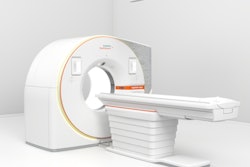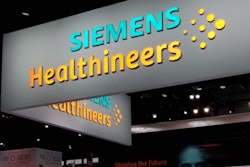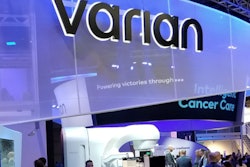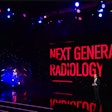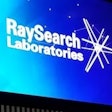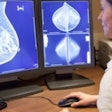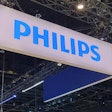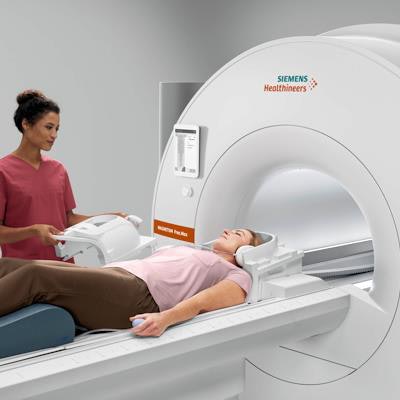
A new midfield MRI scanner with a wide 80-cm bore, Magnetom Free.Max, was among the products unveiled by Siemens Healthineers at Shape 21, a virtual event held on 17 November. The vendor also took the wraps off the Syngo Carbon image and data management platform.
Magnetom Free.Max is a whole-body 0.55-tesla MRI scanner that is the smallest and most lightweight MRI scanner Siemens Healthineers has ever brought to market, according to Christiane Bernhardt, vice president of marketing and sales for the company's MR business line. The scanner is designed to offer users high economic value while also opening up new clinical applications, she said.
Siemens Healthineers believes that while MRI has wrought major changes to medical imaging since its introduction, it still may be underutilized, according to Jan Chudzik, head of global product marketing for MRI.
"There is no doubt MRI has created great clinical value in the past, but there are still spots even within the hospital that would benefit from MRI, but the distance either to the radiology department or the imaging center is limiting it," he said. "Our vision behind Magnetom Free.Max is to bring the value of MRI closer to patients."
In developing Free.Max, Siemens Healthineers wanted to design a system with an ultrawide magnet bore that would make the scanner well-suited for imaging claustrophobic and obese patients, while also being easy to site and operate. The scanner's 80-cm bore is 10 cm wider than the next widest MRI scanner in the company's product line, and its table supports patients weighing up to 320 kilos.
The system's small size makes it easy to install, Bernhardt told AuntMinnieEurope.com. Free.Max is small enough to be installed in a room in the intensive care unit (ICU), which opens up new possibilities in terms of scanning patients who no longer have to be transported to the radiology department -- an important consideration in these days of COVID-19. Even urgent care centers could be possible locations for the system, in a hub-and-spoke configuration that would bring medical imaging even closer to patients.
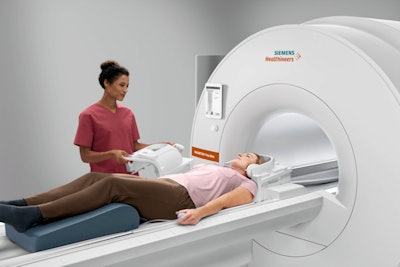 Magnetom Free.Max is a new MRI scanner with an 80-cm bore being launched by Siemens Healthineers. Image courtesy of Siemens Healthineers.
Magnetom Free.Max is a new MRI scanner with an 80-cm bore being launched by Siemens Healthineers. Image courtesy of Siemens Healthineers.What's more, Free.Max requires less than 1 liter of helium to keep its superconducting magnet cold, compared with hundreds of liters for a conventional MRI scanner. Conventional systems also require a quench pipe, which can add significant siting and construction costs. That's not necessary with Free.Max.
Free.Max is capable of performing the full range of clinical applications possible on conventional MRI scanners. New applications are possible based on where the system is sited, such as stroke diagnosis in the ICU or imaging fever of unknown origin. Using MRI could enable patients to be scanned without the use of ionizing radiation, as is the case with CT or x-ray.
The scanner employs the same user interface as other MRI systems in the Magnetom product line, and it also employs Siemens Healthineers' myExam Companion technology for assisting radiographers with setting up and performing exams using standardized protocols. The system makes it easier for radiographers with less training to use the scanner, and it even makes remote operation possible.
Siemens Healthineers plans to sell Free.Max globally, with initial deliveries expected first in Europe after the product receives the CE Mark. The first deliveries in the U.S. are expected in the second half of 2021, after the unit receives 510(k) clearance from the U.S. Food and Drug Administration.
In addition to Free.Max, the vendor also gave attendees at Shape 21 a look at Syngo Carbon, a new software environment for enterprise-wide interpretation and reporting of medical images. Syngo Carbon integrates digital data from different hospital departments and presents it within a unified environment, simplifying workflow and making it easier for clinicians to work together.
Unlike traditional PACS, Syngo Carbon works with all types of medical image data, not just DICOM files, and includes files from pathology, endoscopy, and cardiology. Syngo Carbon users can continue to use their existing technologies and data, according to the company.




